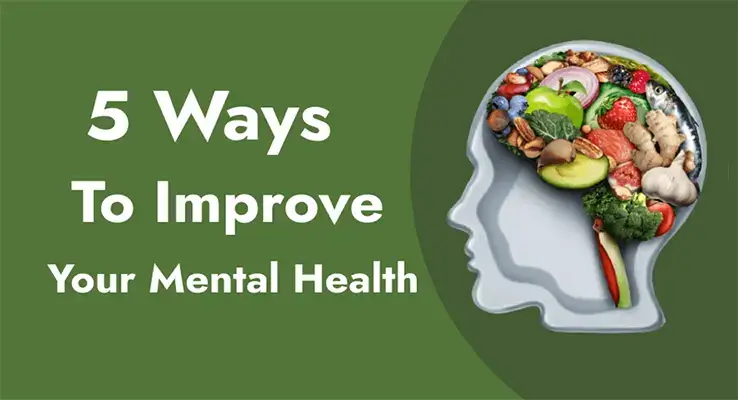Now in the modern day, we are all of us more stressed and busy today than ever before. Some of the most important step that must be taken to the lower sense of well-being is experienced by many of us.
Worry and anxiety are nothing new to us. The shifts in technology, the ways we interact with others and how we relate to the world around us have psychological impacts.
We all sometimes find it difficult to maintain meaningful connections with other people.
We have begun to think it is impossible to juggle all our responsibilities at once.
So, establishing a routine which supports your psychological well-being can make a huge difference.
We all need to discover some straightforward ways to put ourselves first. It would help if you took charge of your personal wellness.
Deep Breathing:
Stress contributes to common mental health issues that we usually come across, such as anxiety and depression. It can also have a lot of negative impacts on you physically.
It can suppress your immune system, leading you to become sick more often. We cannot always avoid stress.
We need to find healthy ways of responding to it. The best and most useful thing you can do to deal with stress is to practice deep breathing. Inhaling air fills your lungs, and you can slow your heart rate.
Experts say you can stimulate the parasympathetic nervous system by increasing the supply of oxygen inside your brain. This process promotes a state of serenity inside the body.
Exercise:
Exercising is one of those activities that will take some internal coaxing to get you to start with this. But once you have wrapped up a workout, you will be really happy about doing it.
Exercise will boost your mood. Experts have suggested that physical exercise is a very effective intervention in mental health care.
Activities such as jogging, swimming, cycling and walking are the most useful way to become free of it.
Exercising can provide you with better sleep, improved mood, enhanced mental alertness, stress relief, increased energy and stamina and reduced cholesterol.
If you notice your anxiety level is rising, it can be a signal to jump back into a regular exercise routine. It will help you to get your blood pumping and sweat the stress away.
Gardening:
Tending a garden is a hobby for many people. Tending a garden will not only spruce up the landscape around you but will also calm your mind.
If you tend a garden, you will be exposed to fresh air, vitamin D and some light movement.
Gardening will positively impact your mental health. Gardening is an effective method for combating stress.
Studies have also found that gardening can reduce cortisol levels inside our bodies.
Studies have also found that we feel more relaxed after spending time in a garden. Gardening can also help in prolonging your attention span.
Reading:
Many people think that reading books reduces mental health difficulties.
Experts have found that reading reduces depressive symptoms inside a person. Diving into a good book can calm your mind.
It will also help in decreasing blood pressure. Studies have also found that the narrative arc of a fictional character can increase a reader’s sense of empathy.
Social Interaction:
In order to become a happier human, you can do for yourself to improve your mental health.
But you cannot do everything alone. Studies have also found that those people who have satisfying relationships with family and friends are happier. These people have fewer health problems.
Covid 19 has actually made our lives more confusing and more challenging.
Students have adopted a new way of living through online classes. Though the ‘new normal’ came to us with its own shortcomings.
Mental Health is one of the major issues that was highlighted in this period of time.
Students had to struggle a lot. Online classes and online exams made many students question their futures.
According to many experts, during the Covid-19 pandemic, concerns such as emotional instability and mood swings, anxiety and depression and lack of motivation and a sense of lethargy were raised among students.
Students’ mental health is quite a delicate issue. It is also a critical issue for all educators.
Experts have acknowledged that students’ mental health influences their learning and accomplishment.
Experts suggest that by following some tips, students can deal with their anxiety and depression.
They can take a proper diet, get proper sleep, stay connected with their friends, do what interests them the most, stay active, and pick up new challenges.
Conclusion:
Incorporating activities like regular exercise, mindfulness practices, maintaining social connections, pursuing hobbies, and ensuring adequate rest can significantly enhance mental health.
These practices promote emotional well-being, reduce stress, and improve overall life satisfaction. By prioritizing self-care and healthy habits, individuals can build resilience and foster a more positive mindset.
